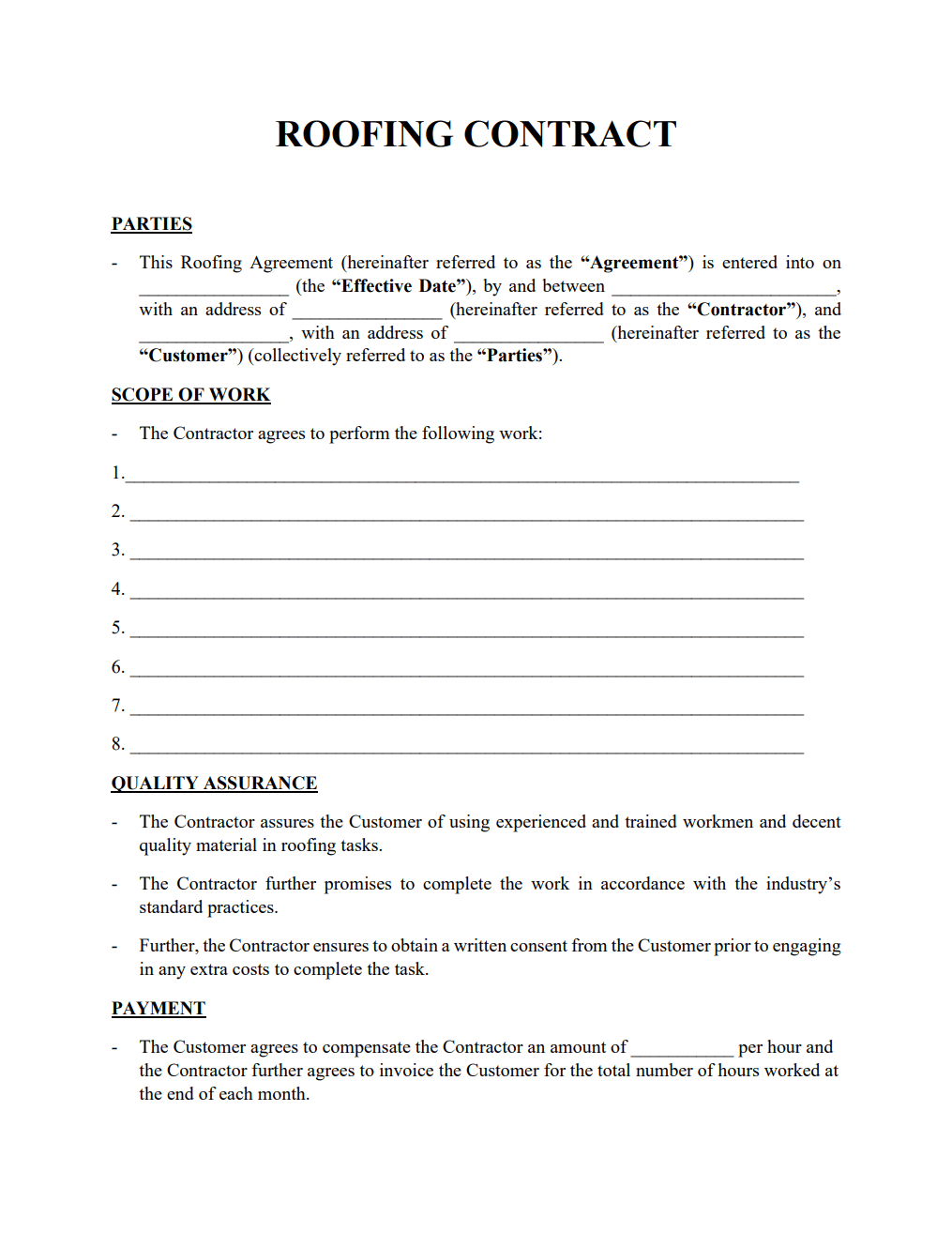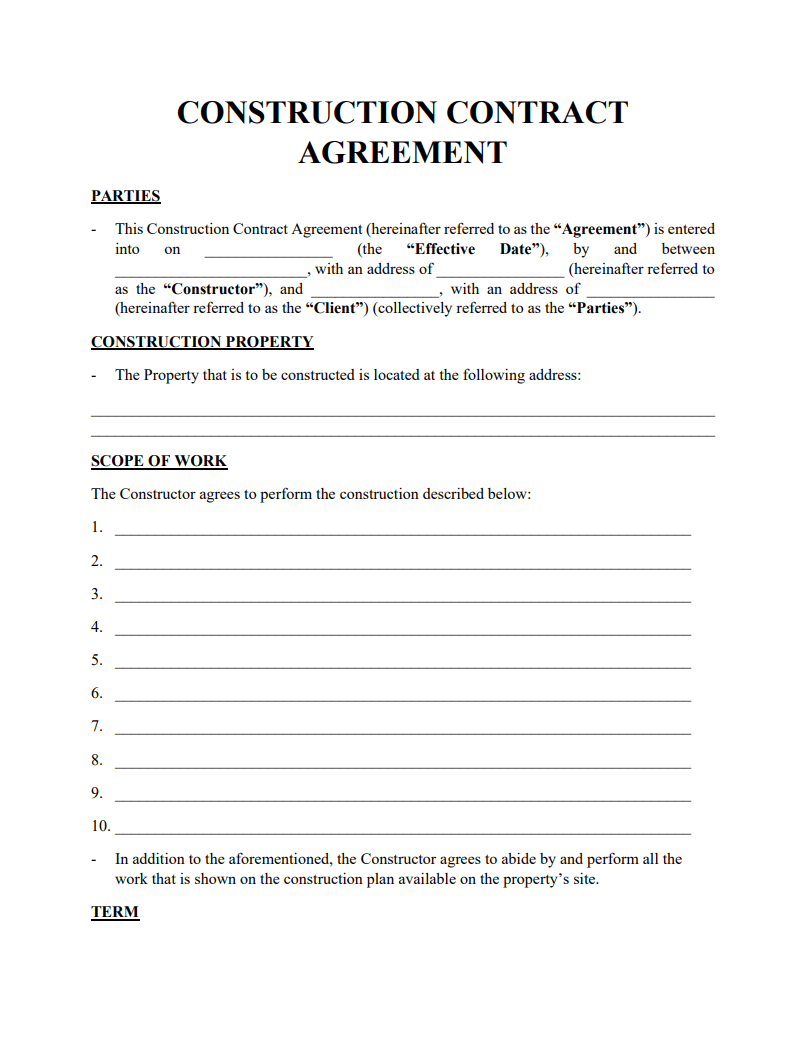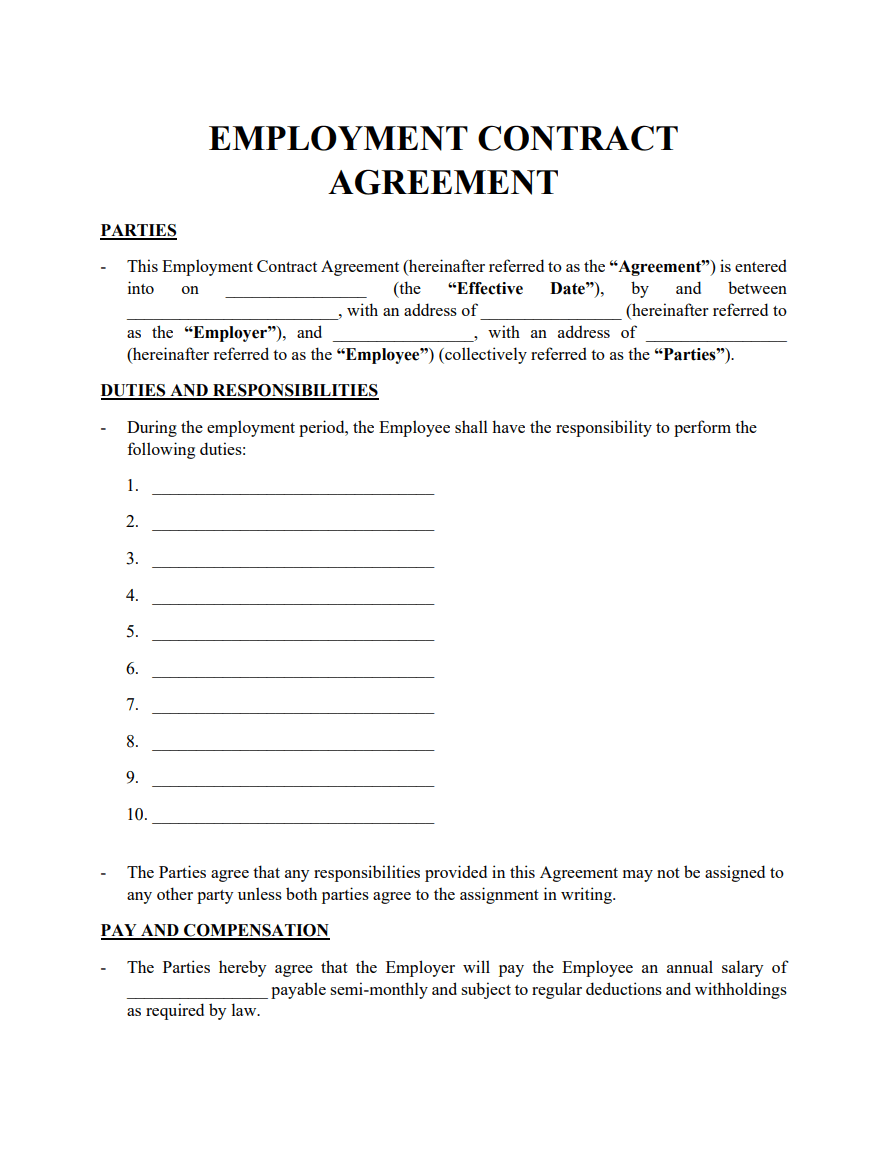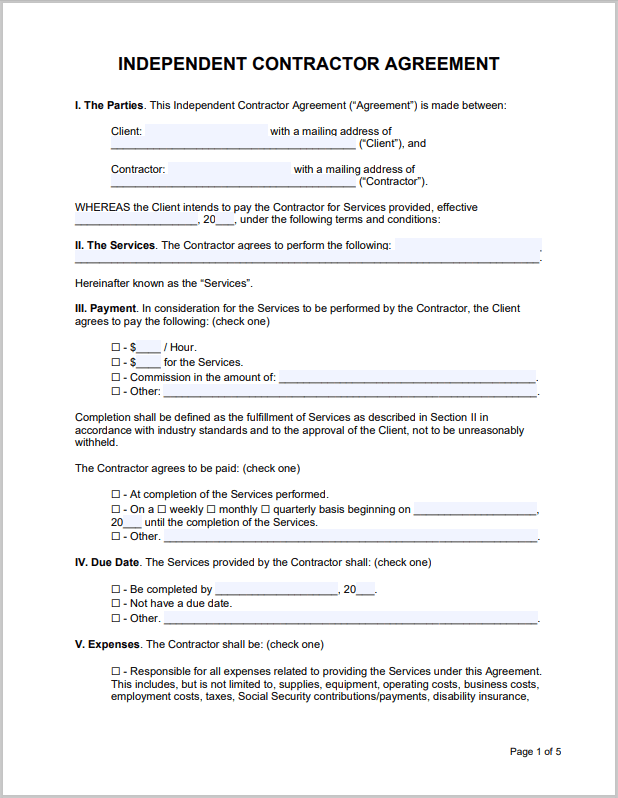What's a Roofing Contract?
Roofing contracts are documents that legally bind roofers to their promises for roofing works. Experienced contractors can make more extended and detailed contracts, but most roofing contracts are typically straightforward.
Roofing projects can be as simple as minor repairs on residential roofs or as complicated and complex as tearing off and reinstalling commercial properties. Regardless of the size of the project, it still costs money; hence, clarifying both details and the scope of the work is crucial to protect the client and the contractor. Once an agreement is reached between two parties, it is proper to turn that agreement into writing and let both parties sign the contract. A signed roofing contract in place before the actual work starts is an excellent option to prevent possible disputes that can lead to costly lawsuits.
Here are essential details that one needs to include when creating a roofing contract:
- Contact details of both parties involved in the agreement
- Project location
- A comprehensive description of the job to be done, including the materials to be used
- Payment terms and their amount
- Warranties and permits
- Insurance coverage
- Legal provisions
- Modifications
- Suspension or termination
Why Should I Use a Roofing Contract?
There are various reasons why a property owner and a contractor need a before any work starts.
- A roofing contract ensures a clear payment schedule and that contractors are legally protected in claims cases.
- It provides property owners peace of mind knowing that the business and agreement are legitimate where all the necessary details like the work to be done and its cost are put into formal writing.
- The legal document also allows contractors to ensure that the property owner understands all the warranties to protect themselves from possible issues.
While it may also be true that roofing contracts are not the only answer to every circumstance, it is still an essential document to lay out the necessary accountabilities and boundaries between the contractor and the property owner. If disputes happen, the contract will be one of the references during legal proceedings.
Best Practices When Using a Roofing Contract Template
Using a roofing contract template is already beneficial. However, here are essential best practices to have the most out of the document:
- Be precise with the work to be completed. Contractors must be clear of the scope of their clients' roofing jobs. Capture important information about the project to provide realistic coverage of what's expected to be done. You might need to consider some questions before mapping out a roofing contract template. This includes the following:
- Have you handled a roofing project before? What was it like?
- What is your budget?
- Who do we approach to make decisions?
- Is there going to occupy the property during the roofing project?
- Discuss the payment terms. This is probably one of the significant elements that need to be discussed before creating a contract. Make the pricing straightforward. You can choose to implement an hourly rate. You also can have a fixed price for the roofing work. However, it can be a handful to quote roofing works because of several variables, leading to over or undercharging.
- Use the roofing contract template to implement a process as to how involved parties will address amendments. Poor contractors, changing weather conditions, and clients' expectations are some of the variables that can change the project. Before finalizing the contract, it would be fitting to assess changes in materials, budget, human resources, or other factors that can affect the completion of the work. You can add a clause on the agreement signed off by the involved parties on the suggested changes before starting the roofing job. This will save contractors from wasting too much time and hold clients accountable for their suggestions or requests.
FAQ about our roofing contract template
Does one need a roofing contractor?
Roofing works are generally expensive and require skilled contractors to handle dangerous roofing equipment. Projects like these can sometimes get a little out of hand without legal and substantiated documentation for every step of the roofing process. It is ideal for getting one for protection if things do not go as planned.
How will I make changes to a roofing contract template?
If you think that your roofing contract needs changes, you can first list the points you want to change. Then you have to consult other parties involved to confirm the changes. It would be best to partner with a lawyer if you need to make significant changes to your template.
How will I cancel a roofing contract?
You can cancel a roofing contract upon the following terms:
- Completion of the project
- When there's a breach of the terms and conditions
- A party involved sends written notice to the other party based on the agreed notice duration.




